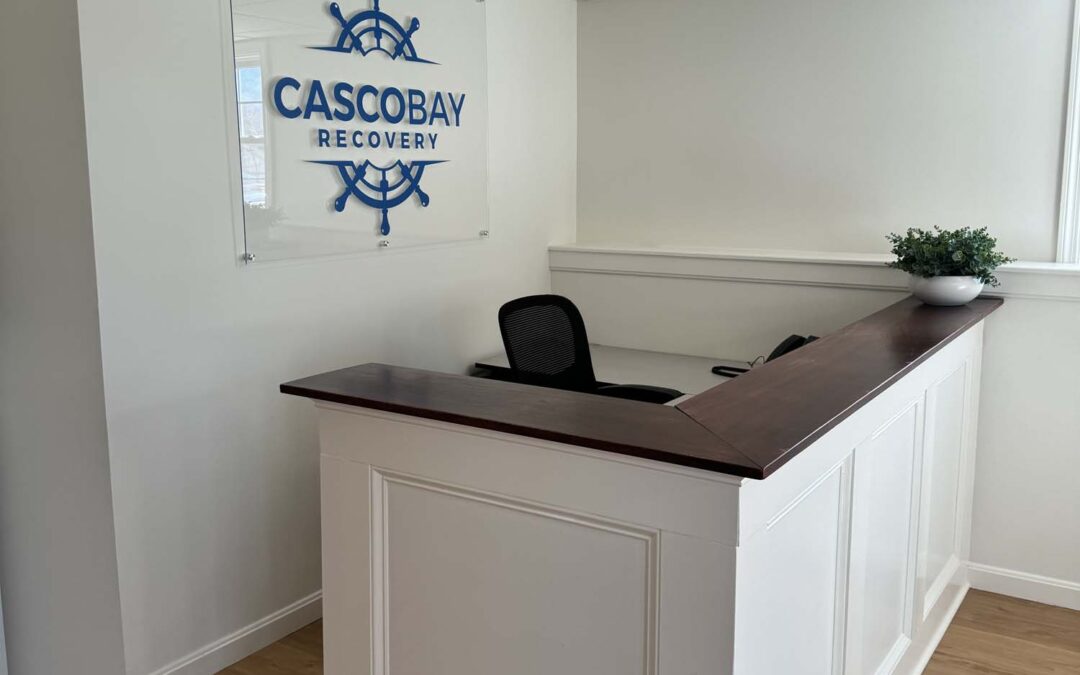1. Integrated and Comprehensive Care
When you’re searching for a dual diagnosis rehab center, the most critical factor to evaluate is whether they provide truly integrated treatment. You need a facility that recognizes substance use disorders and mental health conditions as interconnected challenges that require simultaneous attention, not separate treatment tracks.
Evidence-based treatment for addiction and mental health forms the backbone of effective dual diagnosis care. The best programs combine multiple therapeutic approaches:
- Medications to stabilize mood disorders, manage withdrawal symptoms, and reduce cravings
- Cognitive Behavioral Therapy (CBT) to identify and change destructive thought patterns
- Dialectical Behavior Therapy (DBT) for emotional regulation and distress tolerance skills
- Group therapy sessions that provide peer support and shared experiences
- Individual counseling tailored to your specific trauma history and triggers
This comprehensive approach to addiction and mental health treatment addresses the complex interplay between these conditions. When you have depression alongside alcohol addiction, for example, treating only one condition leaves you vulnerable to relapse. The untreated depression can trigger drinking episodes, while continued alcohol use worsens depressive symptoms.
Integrated treatment significantly reduces relapse risk because it tackles root causes rather than surface symptoms. You receive coordinated care from a team that understands how your mental health symptoms influence your substance use patterns, creating a more effective path to lasting recovery.
2. Holistic Approach to Recovery

Holistic rehab programs understand that recovery involves more than just treating addiction and mental health issues. To heal completely, you need to focus on all aspects of your well-being – your mind, body, and spirit must work together as interconnected parts of your recovery journey.
Mindfulness in Addiction Treatment
Mindfulness plays a crucial role in effective dual diagnosis care. During your treatment, you’ll practice:
- Meditation techniques
- Breathing exercises
- Mindfulness-based stress reduction methods
These practices teach you how to observe your thoughts and emotions without passing judgment. As a result, you’ll develop healthier ways to cope with triggers or difficult situations, replacing harmful habits with conscious awareness and intentional responses.
Nutritional Counseling
Substance use and mental health conditions can take a toll on your body. That’s why nutritional counseling is an important part of the recovery process. You’ll work with registered dietitians who will create personalized meal plans based on your specific nutritional needs and health goals. By focusing on proper nutrition, you can support:
- Balance in brain chemistry
- Stability in mood
- Natural healing processes within your body
Physical Activity in Recovery
Exercise has proven to be both a natural mood booster and stress reliever. In your recovery program, you’ll have the opportunity to engage in various physical activities such as:
- Structured exercise sessions
- Yoga classes
- Hiking expeditions
- Fitness courses
These activities not only help rebuild your physical strength but also release endorphins that combat feelings of depression and anxiety. Additionally, they provide healthy outlets for managing stress and building confidence throughout your recovery journey.
As we approach Recovery Month 2025, the focus on holistic wellness continues to influence modern treatment approaches. This ensures that you receive care addressing every aspect of your health – mental, emotional, and physical – during this critical time in our society’s fight against addiction.
It’s essential to recognize that a holistic approach to recovery encompasses these various elements, ensuring a comprehensive healing process that promotes overall well-being.
3. Thorough Assessment and Individualized Treatment Plans
A quality dual diagnosis rehab center, such as Casco Bay Recovery, begins your journey with comprehensive evaluations that go far beyond surface-level screening. You need a facility that conducts detailed psychiatric evaluation sessions examining your mental health symptoms, their severity, and how they interact with your substance use patterns. This thorough substance use assessment should explore your addiction history, triggers, usage patterns, and previous treatment attempts.
The assessment process must evaluate how your conditions impact your daily functioning – from work performance and relationships to basic self-care activities. Your support systems require careful examination too, identifying family dynamics, social connections, and environmental factors that either help or hinder your recovery process.
Personalized treatment plans emerge from these comprehensive evaluations. You deserve a program that adapts evidence-based therapies to match your specific psychiatric and addiction profile. Some individuals respond better to intensive individual therapy, while others thrive in group settings. Your treatment plan should reflect these preferences and clinical needs.
Your motivation for recovery plays a crucial role in shaping therapeutic interventions. A skilled treatment team recognizes where you are in your readiness to change and adjusts their approach accordingly. They might focus on building motivation initially, then shift to intensive skill-building as your commitment strengthens. This individualized approach ensures you receive the right interventions at the right time, maximizing your chances of successful recovery.
4. Range of Flexible Treatment Settings
Inpatient dual diagnosis rehab provides the intensive foundation necessary for individuals facing severe addiction and mental health challenges. These residential programs offer 24/7 medical supervision, ensuring safe detoxification services while simultaneously addressing psychiatric symptoms. You receive immediate intervention when crisis situations arise, creating a stable environment where healing can begin without external triggers or stressors.
Outpatient programs deliver essential flexibility for those who need to maintain work, family, or educational commitments during recovery. These settings provide:
- Medication management with regular psychiatric consultations
- Structured therapy sessions including individual and group formats
- Peer support groups that build community connections
- Flexible scheduling options to accommodate your daily responsibilities
The most effective Dual Diagnosis Rehab centers embed comprehensive relapse prevention planning across all treatment settings. You learn to identify personal triggers, develop coping strategies, and practice new behaviors in real-world situations. Inpatient programs teach these skills in controlled environments, while outpatient settings allow you to apply them immediately in your daily life.
Each treatment setting serves distinct recovery phases. Residential care stabilizes acute symptoms and establishes initial sobriety, while outpatient programs strengthen long-term recovery skills. You might transition between settings as your needs evolve, ensuring continuous support throughout your healing journey. This flexibility prevents treatment gaps that often lead to relapse.
Moreover, the integration of flexible treatment settings into dual diagnosis rehab significantly enhances the recovery process by catering to individual patient needs and circumstances.
5. Aftercare Support for Sustained Recovery
Aftercare programs serve as the bridge between intensive treatment and independent living, making them a critical component you should evaluate when selecting a dual diagnosis facility. The most effective centers offer comprehensive continued care options that extend far beyond your initial treatment period.
Quality relapse prevention support includes structured mentoring programs where you connect with peers who have successfully navigated similar challenges. These relationships provide ongoing accountability and practical guidance as you encounter real-world triggers. Regular drug testing serves as both a deterrent and early intervention tool, helping you maintain your commitment to sobriety while providing your treatment team with objective progress indicators.
Sober living arrangements represent another essential aftercare component. Look for facilities that either operate their own sober living homes or maintain partnerships with reputable providers. Some centers offer weekend stays or transitional housing options that allow you to gradually increase your independence while maintaining access to professional support.
Community integration forms the foundation of sustainable recovery. The best dual diagnosis centers actively help you rebuild social connections through structured activities, volunteer opportunities, and support group participation. They recognize that isolation often contributes to both addiction and mental health struggles, making community involvement essential for your long-term wellness.
Strong aftercare significantly reduces relapse rates by providing the ongoing structure and support your recovery requires. When you maintain consistent contact with your treatment team and peer network, you create multiple safety nets that catch potential problems before they escalate into full relapse situations.
Finding the Right Dual Diagnosis Rehab Center
Searching for dual diagnosis treatment in Maine can feel overwhelming, but knowing what to look for makes the process clearer. Our Casco Bay Recovery dual diagnosis program exemplifies the comprehensive approach you need when addressing both addiction and mental health conditions simultaneously.
What should you look for in a treatment center? The answer lies in the five essential elements we’ve discussed. When evaluating dual diagnosis rehab options, you want facilities that offer:
- Integrated care that treats both conditions together, not separately
- Holistic therapies like yoga and art therapy alongside traditional CBT and DBT
- Personalized treatment plans based on thorough assessments
- Flexible treatment settings from inpatient to outpatient care
- Strong aftercare support systems
Dual diagnosis means having both a substance use disorder and a mental health condition – and both require specialized, coordinated treatment. Our Portland ME dual diagnosis treatment approach combines evidence-based therapies with innovative wellness practices, creating a foundation for lasting recovery.
The right center doesn’t just treat symptoms; it addresses the whole person through comprehensive, individualized care that extends well beyond initial treatment. If you’re ready to start your journey towards recovery, don’t hesitate to contact us at Casco Bay Recovery for more information about our programs.
FAQs (Frequently Asked Questions)
What is integrated and comprehensive care in dual diagnosis rehab?
Integrated and comprehensive care in dual diagnosis rehab involves simultaneous treatment of both substance use disorders and co-occurring mental health conditions. This approach uses evidence-based combination therapies including medications, cognitive behavioral therapy (CBT), dialectical behavior therapy (DBT), group therapy, and individual counseling to address the complex interplay between addiction and mental health, thereby reducing relapse risk.
How does a holistic approach support recovery in addiction treatment?
A holistic approach to recovery incorporates mindfulness practices, relaxation techniques, nutritional counseling with personalized meal plans, and structured physical activities. These elements support emotional regulation, stress management, physical health, and overall mental well-being as part of a comprehensive addiction treatment program.
Why are thorough assessments important for individualized treatment plans?
Thorough assessments evaluate psychiatric symptoms, substance use patterns, daily functioning impact, and support systems. This detailed information allows treatment providers to tailor personalized treatment plans based on individual needs and motivation for recovery, resulting in more effective therapeutic interventions and better recovery outcomes.
What types of flexible treatment settings are available for dual diagnosis rehab?
Dual diagnosis rehab offers a range of flexible treatment settings including inpatient or residential programs for severe cases requiring intensive supervision and medical detoxification, as well as outpatient programs that provide medication management, peer support groups, and ongoing therapy sessions. Relapse prevention planning is an essential component across these settings to sustain long-term recovery.
How does aftercare support contribute to sustained recovery from addiction and mental health disorders?
Aftercare support includes mentoring programs, regular drug testing, sober living arrangements, weekend stays at the center, and community integration efforts. These continued care options help rebuild social supports critical for maintaining sobriety and mental wellness, significantly reducing the chances of relapse and promoting lifelong recovery success.
What should I look for when choosing a dual diagnosis rehab center like Casco Bay Recovery?
When selecting a dual diagnosis rehab center such as Casco Bay Recovery in Portland ME, look for features like an integrated care approach that treats both addiction and mental health simultaneously; availability of holistic therapies such as yoga or art therapy alongside traditional modalities like CBT or DBT; flexible treatment settings; thorough assessment processes; and strong aftercare support programs to ensure sustained recovery.








